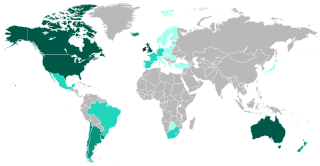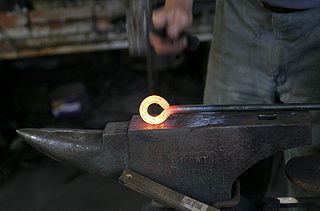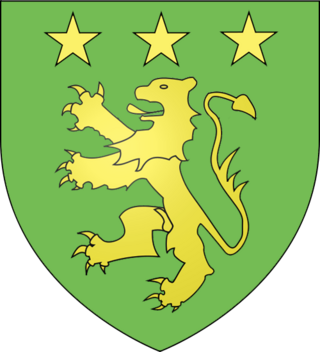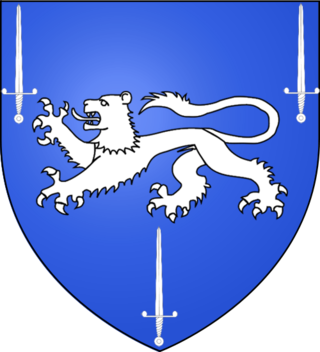
Akins is a Scottish surname and northern Irish family name.

The Irish are an ethnic group and nation native to the island of Ireland, who share a common ancestry, history and culture. There have been humans in Ireland for about 33,000 years, and it has been continually inhabited for more than 10,000 years. For most of Ireland's recorded history, the Irish have been primarily a Gaelic people. From the 9th century, small numbers of Vikings settled in Ireland, becoming the Norse-Gaels. Anglo-Normans also conquered parts of Ireland in the 12th century, while England's 16th/17th century conquest and colonisation of Ireland brought many English and Lowland Scots to parts of the island, especially the north. Today, Ireland is made up of the Republic of Ireland and Northern Ireland. The people of Northern Ireland hold various national identities including Irish, British or some combination thereof.

Smith is an occupational surname originating in England. It is the most prevalent surname in the United Kingdom, the United States, Australia, Canada, and New Zealand, and the fifth most common surname in the Republic of Ireland. In the United States, the surname Smith is particularly prevalent among those of English, Scottish, and Irish descent, but is also a common surname among African-Americans, which can be attributed either to African slaves having been given the surname of their masters, or to being an occupational name, as some southern African-Americans took this surname to reflect their or their father's trade. 2,442,977 Americans shared the surname Smith at the time of the 2010 census, and more than 500,000 people shared it in the United Kingdom as of 2006. At the turn of the 20th century, the surname was sufficiently prevalent in England to have prompted the statement: "Common to every village in England, north, south, east, and west"; and sufficiently common on the (European) continent to be "common in most countries of Europe".
McQueen, Mcqueen, MacQueen or Macqueen may refer to:

The surnames McCabe and MacCabe are Irish and Scottish surnames. McCabes are considered to have moved from the Western Isles of Scotland to Ireland sometime around 1350. McCabes are now found mostly in the United States, Ireland and the United Kingdom, Australia, South Africa, and New Zealand.

Moore is a common English-language surname. It was the 19th most common surname in Ireland in 1901 with 15,417 members. It is the 34th most common surname in Australia, 32nd most common in England, and was the 16th most common surname in the United States in 2000.
McCawley and MacCawley are surnames in the English language. The names are Anglicisations of several Gaelic-language surnames. There are several etymological origins for the names: all of which originated as patronyms in several Gaelic languages—Irish and Scottish Gaelic. Although the English-language surnames are ultimately derived from Gaelic patronyms, the English-language surnames, and the modern Gaelic-language forms do not refer to the actual name of the bearer's father or grandfather. The surnames are not very common.
Jones is a surname of Welsh and English origin meaning "son of John". The surname is common in Wales. It evolved from variations of traditionally Welsh names: Ieuan, Iowan, Ioan, Iwan, or even Siôn. The sound generated from ‘Si-’ in Siôn is a Welsh approximation of the English ‘J’ sound, equivalent to the English ‘Sh’ such as in “shed.”
McHugh is a common surname of Irish origin. It is an anglicisation of the original Irish Mac Aodha, meaning literally "Son of Aodh". Aodh was a popular male given name in mediaeval Gaelic Ireland. It was traditionally written in English-language documents as Hugh, an unrelated name of Frankish origin.
Cawley is a surname in the English language. There are several different origins of the surname. In some cases the surnames are derived from any of numerous place names in England. In other cases the surnames are derived from any of several Gaelic language surnames.
McElwain or McElwaine is a surname of Gaelic origin. It can be derived from either Scottish or Irish. The Scottish translation being the anglicized form of Gaelic Mac Gille Bheathain, meaning ‘son of the servant of (Saint) Beathan’ and also a personal name representing a diminutive of beatha ‘life’. The Irish form being the anglicised form of Gaelic Mac Giolla Bháin, meaning ‘son of the white-haired lad’. In Ulster this surname can be derived to be the Scottish form as opposed to the Irish form which would be more common in the Republic of Ireland. Another anglicised version of the Irish "Mac Giolla Bháin" is the surname Kilbane.

MacGorman, also known as McGorman, Gorman, or O'Gorman, is an Irish Gaelic clan based most prominently in what is today County Clare. The paternal ancestors of the clan are of the Laigin and emerged in what is today County Waterford. As leaders of the Uí Bairrche, they competed with the Uí Cheinnselaig in the 5th century for the Kingship of Leinster, ultimately losing out in that specific arena, but holding on to significant lands in the Leinster area.
Lachlan is a masculine given name of Scottish Gaelic origin.
Ewen is a male given name, most common throughout Scotland as well as Canada, due to the immigration of Scottish people. It is an anglicisation of the Scottish Gaelic name, Eòghann. It is possibly a derivative of the Pictish name, Uuen, "born of the mountain." Ewen or Ewan is also a Scottish surname, as in Clan MacEwen.
The McPhillips surname may be of Scottish or Irish origin, the surname is found predominantly in Ireland, in Cavan, Fermanagh and Monaghan counties. It is usually derived from the common surname Phillips.
McCauley and MacCauley are surnames in the English language. There are several etymologically unrelated origins for the names: all of which originated as patronyms in several Gaelic languages—Irish and Scottish Gaelic. Although the English-language surnames are ultimately derived from Gaelic patronyms, the English-language surnames, and the modern Gaelic-language forms do not refer to the actual name of the bearer's father. The Irish McCauley's originated in county Westmeath in the Irish Midlands, province of Leinster, where at one time the area which is now Ballyloughnoe was once called "McGawley's Country, the scottish McCauleys are partly descended from the Irish McCauleys as the Irish moved to Scotland offered land by Robert the bruce" The English-language surnames are generally popular in certain parts of Ireland—both in the Republic of Ireland and Northern Ireland. According to census records in the United States of America, "MCCAULEY" (McCauley) is a somewhat common surname, although "MACCAULEY" (MacCauley) is extremely rare.
Macaulay, McAuley, MacAuley, and Macauley are Scottish and Irish surnames. There are several etymological origins for the names: all of which originated as patronyms in Gaelic languages—Irish and Scottish Gaelic. Although these English-language (Anglicized) forms of the surnames are ultimately derived from Gaelic patronyms, they do not refer to the actual name of the bearer's father. The surname is quite common in Ireland, particularly in Ulster.
Macaulay, Macauley, MacAulay, McAulay and McAuley are surnames of Irish origin originating in Westmeath, Leinster anglicized from Irish Mac Amhalghaidh in the English language. The surname is also found in Scotland of distinct, but related origins due to Irish settling in Scotland. Some of the Irish Macaulay's settled in Scotland during the reign of Robert the Bruce. There are several etymological origins for the names: all of which originated as patronyms in several Gaelic languages—Irish and Scottish Gaelic. Although the English-language surnames are ultimately derived from Gaelic patronyms, the English-language surnames, and the modern Gaelic-language forms do not refer to the actual name of the bearer's father.

The Scottish people or Scots are an ethnic group and nation native to Scotland. Historically, they emerged in the early Middle Ages from an amalgamation of two Celtic peoples, the Picts and Gaels, who founded the Kingdom of Scotland in the 9th century. In the following two centuries, Celtic-speaking Cumbrians of Strathclyde and Germanic-speaking Angles of Northumbria became part of Scotland. In the High Middle Ages, during the 12th-century Davidian Revolution, small numbers of Norman nobles migrated to the Lowlands. In the 13th century, the Norse-Gaels of the Western Isles became part of Scotland, followed by the Norse of the Northern Isles in the 15th century.
The Gaelic surname Mac Suibhne is a patronymic form of Suibhne and means "son of Suibhne". The personal name Suibhne means "pleasant".










